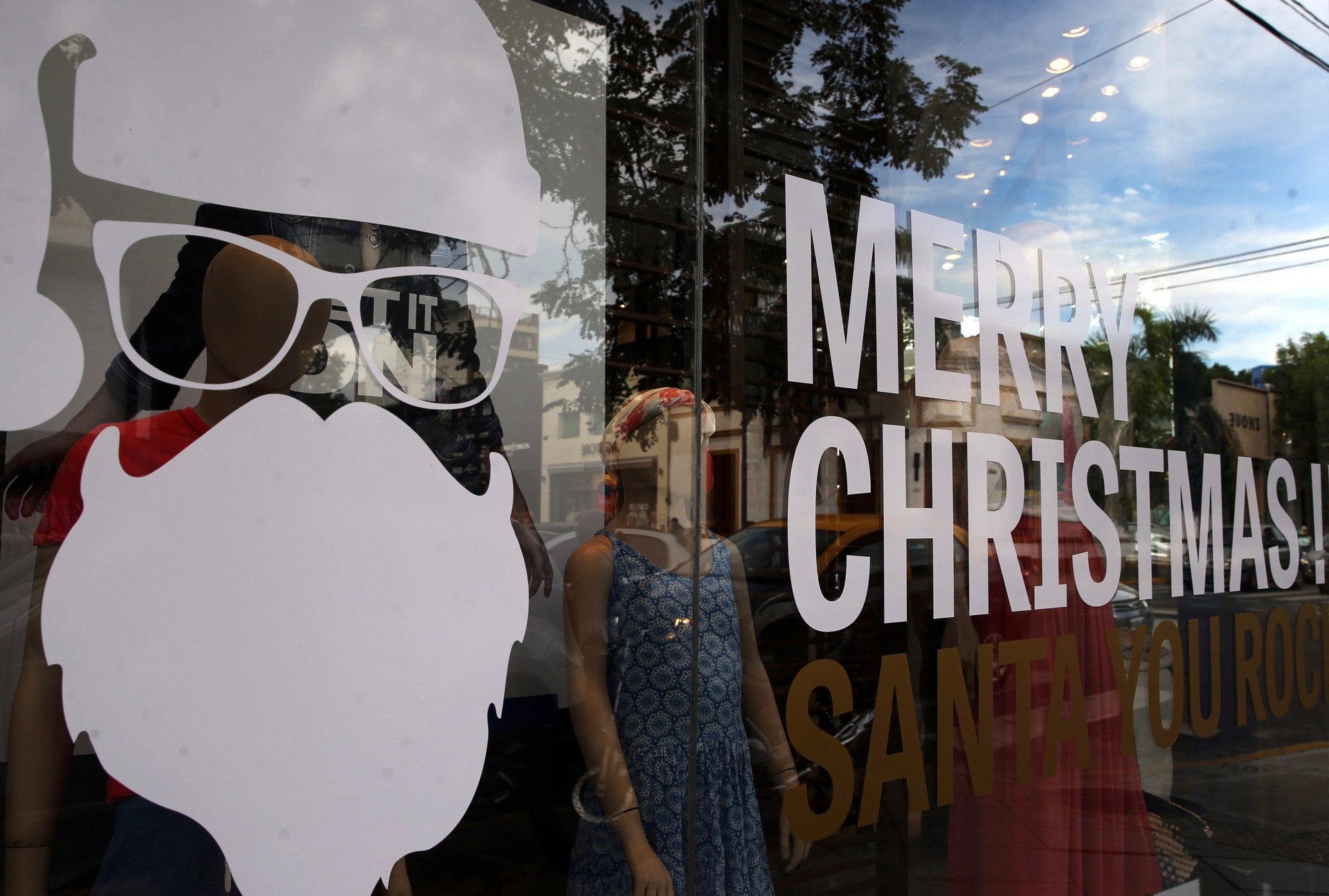Resisting Christmas is futile
Around this time of year—the time of alleged cheer—some people get very cranky about the saying “Merry Christmas.”


Around this time of year—the time of alleged cheer—some people get very cranky about the saying “Merry Christmas.”
There are those upset by the fact that they’ve been asked to switch from the traditional well-wishing to the more inclusive statement, “happy holidays.” Fox News firebrand Bill O’Reilly, who has been fighting what he calls “the war on Christmas” for more than a decade, falls into this camp. And then there are those who object to being wished “Merry Christmas” at all.
It’s understandable that people who see their religion (or lack thereof) as part of their personal identity might have strong feelings on the subject. But the problem with personalizing harmless holiday greetings is that they often aren’t personal—at least not to the recipient.
Personalization is a common cognitive distortion. Psychologists warn against it. People who personalize think everything that is said or done has something to do with them, and often take offense at statements or misguided attempts that are innocuously intended. They are stressed, defensive, and anxious, and prone to feeling under attack.
But in reality, when a colleague or stranger or store clerk wishes you merry Christmas, or a commercial enterprise posts a seasonal sign, they are just expressing a sense of cheer they feel or, more cynically, believe to be commercially expedient. It’s probably not a sign of disrespect. They aren’t trying to convert anyone to Christianity any more than Toblerone certifying it’s halal turns the chocolate maker into a Muslim enterprise.
That’s not to say that cultural minorities—be they atheists, Jews, Muslims, Buddhists, Sikhs, or any other—must subsume their beliefs to the majority. On the contrary. All people’s beliefs and practices warrant respect. However, nothing is gained by being a crank about differences in this particular context. Arguably, in a highly diverse culture, if we all want recognition, we need to be more flexible about our interactions. We can’t demand perfect understanding all the time.
This Christmas, I’ll be working while some of my colleagues celebrate the holiday. I do it at Quartz, and did it as a public defender in Palm Beach County, going to the county jail to handle first appearances for indigent defendants arrested on Christmas Eve. It was the sweetest day to hang around the incarcerated, when the holiday spirit prevailed and judges and guards felt most generous. It’s possibly the most Jewish thing I do and an easy way to be of use, just as it’s easy for my Catholic father-in-law to send me and his atheist son a Chanukah card every holiday season.
Living together with people who are different from ourselves doesn’t have to be a constant battle. Just as I hope that a conservative Christian baker who opposes same-sex marriage could bake a cake in celebration of any happy union, regardless of their personal faith, I hope someday day we can all have exchanges about cheerful occasions like holidays without rancor. Personal beliefs don’t have to be a basis for perpetual division. They can just be the distinctions that make us different from one another—not at war, but at peace, and each of us doing our things.